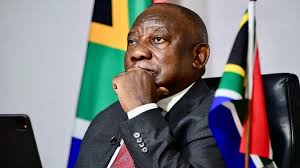As leaders of the world’s largest emerging economies gathered at the BRICS Plus 16th Heads of State Summit in Russia this week, South African President Cyril Ramaphosa delivered a poignant address that underscored the dire humanitarian crisis unfolding in Gaza.
With a backdrop of escalating violence and an apparent lack of decisive action from the international community, Ramaphosa’s remarks on Thursday raised critical questions about the effectiveness of global governance in the face of ongoing atrocities.
“South Africa is concerned about the military aggression by Israel against the people of Gaza, which we have characterised as genocide,” said Ramaphosa, echoing the sentiments of many who view the situation as a humanitarian catastrophe.
His statements follow South Africa’s recent legal manoeuvre to approach the International Court of Justice, seeking to halt the relentless bombardment that has claimed countless innocent lives, particularly among women and children.
Despite this legal challenge and widespread international condemnation, Israel’s military actions continue unabated, prompting questions about whether the global community is truly capable of addressing such flagrant violations of human rights.
“We believe the world cannot sit by and watch the suffering,” he stated, imploring the international community and the UN Security Council to take meaningful steps to de-escalate the conflict.
Ramaphosa reaffirmed South Africa’s advocacy for a two-state solution, which envisions an independent Palestinian state based on the borders established in 1967, with East Jerusalem as its capital.
This vision aligns with UN resolutions and international law, yet the reality on the ground remains grim.
The South African president’s call for action is underscored by a growing frustration among nations that have long advocated for peace but now witness the erosion of their efforts.
The horrors extend beyond Gaza as Ramaphosa drew attention to similarly forgotten conflicts within Africa such as the ongoing devastation in Sudan and the persistent strife in the Sahel and Great Lakes regions.
“These are conflicts that the world seems to have forgotten about,” he lamented, noting the need for a renewed commitment to resolving disputes through negotiation and inclusive dialogue.
Ramaphosa articulated a vision for a multilateral world where nations can pursue independent foreign policies and where global institutions are strengthened and reformed to effectively contribute to international peace and security.
JN/APA


